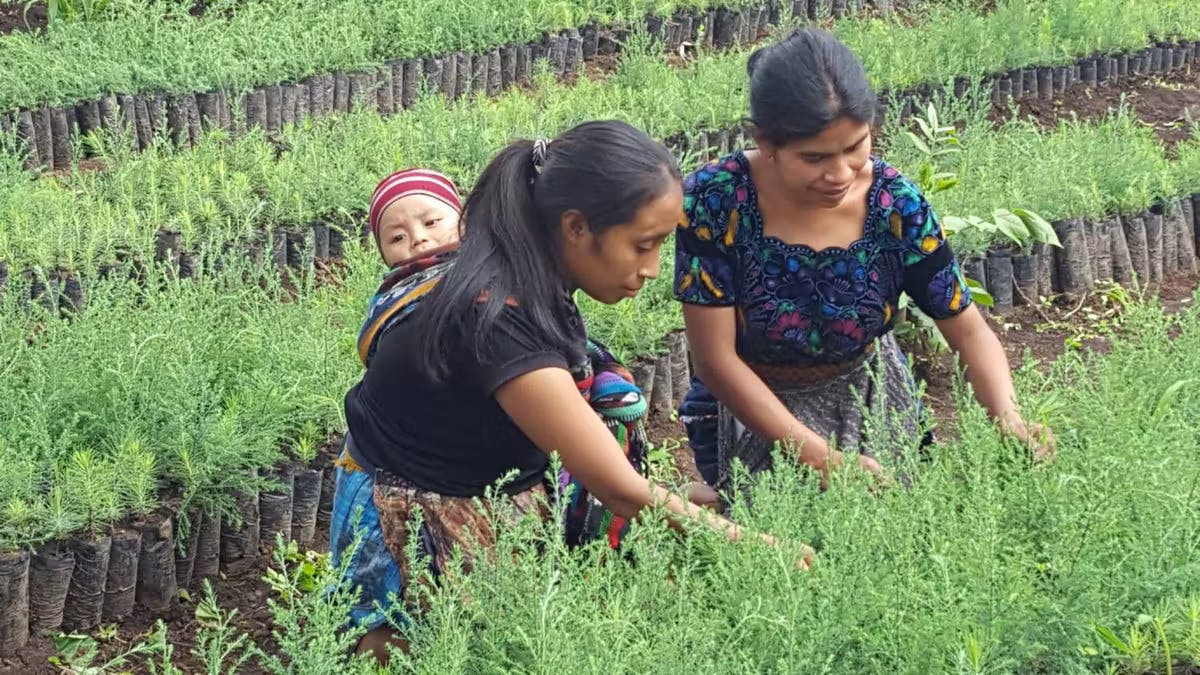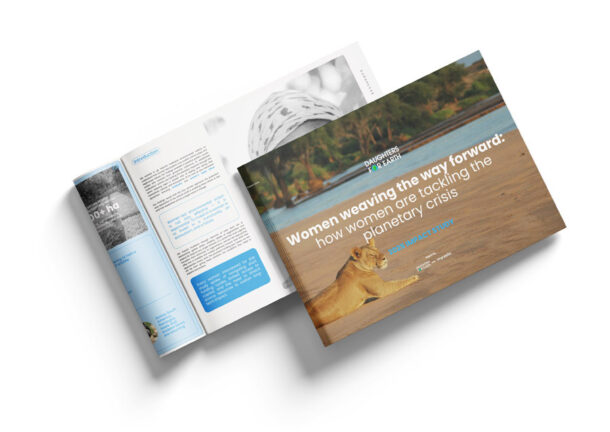This project will plant approximately 80,000 native trees, establish eight community gardens, establish eight true nurseries and reduce the impacts of climate change. While it provides habitat for wildlife.
2022
Poverty in Mayan communities is high, averaging 79%, with 40% experiencing extreme poverty. Guatemala has the highest rate of chronic malnutrition in Latin America, with hunger and stunting affecting 58% of Indigenous children. Malnutrition is compounded by the deforestation caused by population growth and corporations’ use of the best farmland for export crops, forcing native families to farm on steep mountain slopes. Deforestation has devastated the environment, causing mudslides and massive soil erosion that result in poor crops and even more malnutrition. The loss of trees also removes critical habitats for birds and other wildlife, vanishing at an alarming rate.
Guatemala is a country rich in cultural and natural diversity. The Alliance for International Reforestation (AIR) works primarily with approximately 40% of the population of Mayan descent, mainly small-holder K’iche’ and Kaqchikel farmers in the mountainous west-central part of the country. Its program is operated out of a training center in Chimaltenango, Guatemala. Still, technicians travel throughout three departments providing AIR programs of tree nurseries/reforestation, regenerative agriculture training, fuel-efficient stoves, rural school programs, and scholarships. Guatemalan staff includes Executive Director Cecilia Ramírez, a secretary, and six Indigenous Maya technicians with degrees in Agroforestry or Environmental Engineering.
The program components and expected outcomes of this project include:
- Reducing the impacts of climate change and providing habitat for wildlife through reforestation by planting 80,000 native species trees.
- Improving food production and nutrition using organic regenerative farming techniques. Significant productivity increases are predicted for 80 participating farms. In addition, new community organic gardens will be created to provide a source of fresh produce.
- Protecting cropland, reducing mudslides and soil erosion, and improving downstream water quality through reforestation and agricultural techniques.
- Establishing eight tree nurseries that can be converted to micro-businesses post-project to increase family income.
The majority of small-holder farmers participating in this project are Maya women. Both they and the environment in which they live benefit directly. AIR’s program addresses the phenomenon known as “two Guatemalas” – a political and economic inequality pattern that traps the poor Indigenous population at the bottom of society. This inequality is addressed through environmental restoration, improved diet, education, resident leadership, and income assistance. Because participants work and learn together in teams, this program also enhances the rich culture, deep religious faith, and interpersonal connections present in the communities.
The goal is to provide two years of training and support for eight volunteer farmer groups representing approximately 80 farm families (320 to 400 individuals). The budget would cover two years of salary for one AIR technician, transportation costs, and the equipment/supplies needed to establish and maintain community tree nurseries, establish and maintain organic community gardens, and provide for educational materials and other training costs for participants.
Funding will:
- Provide a technician from AIR and the necessary supplies and materials to create weekly to bi-monthly hands-on training for 80 farm families for two years.
- The training will include classes on various topics, including the purposes of specific trees, how to grow and plant trees, nutrition, terracing fields, polyculture, making a rich compost called “Bocashi,” and other topics applicable to site-specific issues.
- Establish eight tree nurseries to grow the seedlings for reforestation and teach reforestation lessons.
- Establish eight community gardens to supplement food sources and teach regenerative farming techniques (1 for each of 8 groups).
- Plant new trees from seedlings grown in seed bags in the community tree nurseries established under this project. This project will plant approximately 80,000 native trees. Species planted, and locations for planting will be site-specific and identified under the AIR technician’s guidance.
- Potentially, establish microbusinesses from tree nurseries and community gardens for participants for personal use after the project.


